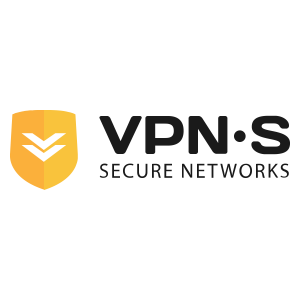VPNSecure Review (2024): A VPN With Functionality Issues
VPNSecure claims to be a stealth VPN that offers “strategic” server locations and “awesome” pricing. However, do these descriptions accurately represent what VPNSecure offers?
Our years of examining VPN providers have shown us that most of these terms are often marketing jargon. That’s why our experts extensively tested VPNSecure’s speed, safety, user-friendliness, and server network.
In this VPNSecure review, we’ll walk you through our findings to help you decide if this VPN provider is designed to meet your needs.
VPNSecure: A Short Review
What We Like
- AES-256 encryption
- No-logs policy
- Kill switch available
- Bitcoin payments accepted
What We Don't Like
- Major issues connecting to its servers
- Headquarters located in a 5 Eyes country
- Doesn't unblock streaming services
- Small server network
- App window dissapears when minimized on desktop
Unfortunately, we were disappointed by what we discovered while running our VPNSecure testing circuit. We could not connect to its servers, no matter how hard we tried.
This is one of the main reasons we don’t recommend purchasing VPNSecure, not even its free trial. If the servers don’t work, the provider cannot give you anonymity online or help you with other activities, including unblocking websites, streaming, and downloading torrents.
During our previous testing, we had issues connecting to VPNSecure’s servers and had to jump through several hoops with their customer support before getting a few to connect. This time, VPNSecure’s customer support agents did not reply to our series of emails, even after weeks.
| 💵 Price | From $2.99 per month |
| 📱 Operating systems | Windows, Mac, iOS, Android, Linux |
| 💻 Connections | 5 |
| 💳 Payment methods | PayPal, Cryptocurrency |
| 🔒 Protocols | OpenVPN, PPTP, HTTP |
| 📥 Torrent options | Torrenting allowed |
| 📅 Money-back guarantee | Money-back guarantee, 30 Days |
| 📋 Logs | Zero logs |
| 🎬 Works with |
|
There are certainly better VPN providers to choose from, like NordVPN, one of the best VPN services. We’ve tested NordVPN extensively and have never had an issue connecting to its servers. It’s also super fast, has top-notch encryption, and can unblock virtually any streaming service.
Speed – How Fast is VPNSecure?

We couldn’t run speed tests for our VPNSecure review because we couldn’t connect to VPNSecure’s servers. Hence, we give VPNSecure a score of 5/10 for speed. However, in this section, we’ll stick with our last test results, but we do not recommend using this VPN currently as we cannot guarantee it will work properly.
Here are the conclusions we made during our last testing circuit:
- VPNSecure offered us decent speeds when we connected to nearby servers.
- Connection speeds dropped significantly with distant VPNSecure servers.
- Downloading large files can take up to a full day when using VPNSecure.
Previous speed test results for VPNSecure
First, it’s important to understand that your connection speed depends on different factors. For instance, your location, internet service provider, and connection type (broadband or Wi-Fi) all play a significant role.
Therefore, to give you a good idea of VPNSecure’s speed, during our last testing circuit, we first measured our speed without a VPN to establish our base speed, and then we used the VPN provider to see how it faired regarding the speed of its servers. The results of our previous tests are in the table below.
| Server | Ping (ms) | Download Speed (Mbps) | Upload Speed (Mbps) | Download speed % |
|---|---|---|---|---|
| No VPN | 4 | 94.13 | 94.77 | 100% |
| Netherlands – Amsterdam (local server) | 8 | 78.40 | 73.89 | 83.29% |
| Germany – Frankfurt | 15 | 79.86 | 87.85 | 84.84% |
| United Kingdom (London) | 12 | 29.01 | 88.19 | 30.82% |
| United States East (Virginia) | 96 | 18.33 | 86.42 | 19.47% |
| United States West (Los Angeles) | 147 | 13.26 | 88.63 | 14.09% |
| Canada (Montreal) | 106 | 19.05 | 58.84 | 20.24% |
| Brazil (Sao Paulo) | 222 | 46.59 | 34.81 | 49.50% |
| South Africa (Johannesburg) | 198 | 5.94 | 3.17 | 6.31% |
| Japan (Tokyo) | 222 | 37.13 | 87.81 | 39.45% |
| Australia (Sydney) | 321 | 17.65 | 29.87 | 18.75% |
Speeds decreased when connecting to a local VPNSecure server, but not drastically. These speeds were more than passable for normal internet use, such as browsing and watching YouTube videos.
However, when accessing distant servers, the speeds dropped dramatically, and the ping skyrocketed to values that can clearly affect one’s online experience, especially if they are trying to stream content. This happened when we connected to servers in Brazil, South Africa, and Australia.
Last known speeds during daily use
In our last VPNSecure testing, we checked how the provider performs during daily use. At that time, we were reasonably pleased with VPNSecure’s speeds. We also managed to watch YouTube videos and browse the web without any serious issues.
Unfortunately, when downloading large files, we did notice a significant speed drop. For instance, we downloaded a video game, and our average download speed was only 6.38 Mb/s. In other words, it took us an entire day just to download one game.
Opt for a functional and fast VPN instead
We do not recommend using VPNSecure since its servers didn’t work at the time of writing. Bear in mind that we faced connection issues during our previous tests too, so it seems like VPNSecure has serious problems making its servers work.
As a result, we recommend NordVPN, a fast and reliable VPN whose servers work seamlessly. As you’ll see in our NordVPN review, we’ve never had an issue connecting to any of its 5,000 servers.
More importantly, it offers fast download and upload speeds with low latency. This makes NordVPN the better choice for streaming, downloading files, and gaming.
Safety – How Secure is VPNSecure?

VPNSecure offers good security features, and the company is clear and transparent about how they protect your privacy, as we discovered during our VPNSecure review. That’s why we gave the service a score of 8.5/10 in terms of safety.
These are our conclusions about VPNSecure’s safety and privacy:
- VPNSecure mainly uses the very reliable and open-source OpenVPN protocol.
- Offers strong AES 256-bit encryption and a kill switch.
- VPNSecure has a no-logs policy.
- It is headquartered in Australia, which is a 5 Eyes country, meaning its location presents a potential privacy risk.
- VPNSecure accepts Bitcoin payments.
Protocols
VPNSecure mainly uses OpenVPN. Cryptography and VPN experts regard this as the very best VPN protocol out there, with the greatest level of security. Moreover, this protocol is open source, meaning anyone who is code-savvy can inspect the code to see if it has any security flaws and vulnerabilities.
VPNSecure claims on its website that it supports the PPTP protocol and HTTP Proxy, but this is not shown in the VPN’s apps. Plus, if you compare VPN protocols, you’ll see that PPTP is an old protocol that offers fast speeds but low-level encryption.
In terms of encryption, VPNSecure also provides three options:
- Data Encrypted Standard (DES): This is a dated cipher with a key length of 56 bits and is unsuitable for modern applications.
- AES-128: AES refers to Advanced Encryption Standard, and the 128-bit is one of the safest around.
- AES-256: This is a much more secure cipher and will take numerous human lifetimes to crack.
It’s strange that VPNSecure allows users to choose between these protocols since the standard practice in the VPN space is for encryption to be built in within the software. That said, we recommend you choose AES-256 encryption as your cipher since it’s the most secure.
Logging and privacy
VPNSecure’s terms of service seem clear and transparent. Its privacy policy is short and plainly written, with a focus on user privacy. Its policy states that VPNSecure doesn’t save any data on users that connect with the VPN.
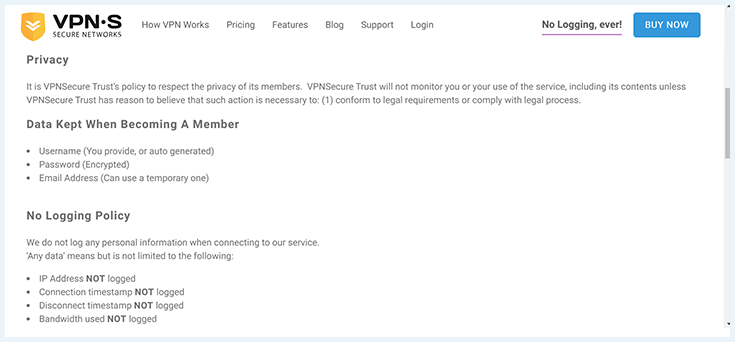
More specifically, they state none of the following data will be logged:
- Your IP address
- Connection timestamps
- Disconnection timestamps
- Amount of used bandwidth
- DNS requests
However, there’s a caveat: VPNSecure will monitor your use of its service if it “has reason to believe that such action is necessary to conform to legal requirements or comply with legal process.” This provision is likely because VPNSecure is headquartered in Australia, which is a member of the Five Eyes Alliance.
In brief, the Five Eyes Alliance is an intelligence-sharing alliance between the US, UK, Australia, Canada, and New Zealand. These countries are said to engage in “ocean surveillance, covert action, human intelligence collection, and counterintelligence.”
For a genuinely no-logs VPN, we recommend you choose one of the best no-logs VPNs. NordVPN sits on top of that list because of its verified no-logs policy and RAM-only servers that do not save any of your data.
Kill switch
Like any decent VPN provider, VPNSecure also offers a kill switch. This feature will stop you from connecting to the internet if your VPN connection is somehow interrupted. This means your data and identity will not be compromised.
While testing this feature, we had to manually enable the kill switch from the application. You won’t see the words “kill switch” in VPNSecure’s app. Rather, to activate or deactivate the kill switch, check the button labeled “disable internet on disconnect.”
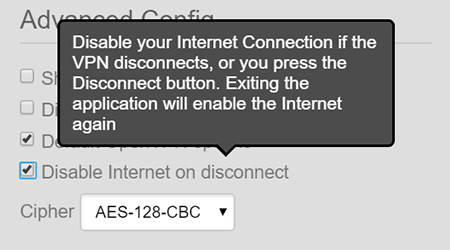
Based on our previous tests of VPNSecure, the kill switch worked well for us.
Does VPNSecure leak your data?
We couldn’t run IP, webRTC, and DNS leaks for VPNSecure because we couldn’t connect to any of its servers during our VPNSecure review.
If the servers start working before we are able to complete our next testing round, you can check that the provider has not logged DNS requests online. Simply connect to a VPNSecure server and go to dnsleak.com. If the test reveals anything about your original location, the VPN suffers from leaks.
Which information does VPNSecure need?
VPNSecure requires the following data:
- Email address: You can use a temporary and anonymous email address to register.
- Username: You can have VPNSecure generate one for you. If you choose a username that doesn’t reveal anything about you, it won’t affect your privacy.
- Password: This password will be encrypted.
- Payment information: If you use a credit card, for instance, you’ll give away your identity, of course. Fortunately, you can also pay using Bitcoin.
Remember that paying for something using cryptocurrency is generally much more anonymous than using conventional payment methods such as PayPal or credit card. As such, we strongly recommend using this option if you want to keep your anonymity.
Usability – How User-Friendly is VPNSecure?

VPNSecure has a user-friendly website, but you may experience connectivity issues and have difficulties reaching customer support. That is why we gave VPNSecure a 4/10 for usability.
These are our main findings regarding VPNSecure’s user-friendliness:
- VPNSecure has a clear and easy-to-navigate website, but it’s not regularly updated.
- The application is easy to use when it’s actually working (we discuss this below).
- It allows for an anonymous payment method with Bitcoin.
- The customer service isn’t responsive, and the knowledge base is limited.
VPNSecure’s website and installation process
During our VPNSecure review, we found the website easy to navigate. Plus, it uses a bright and upbeat design.
At the top, we found a menu with standard but useful categories. Among these are “How VPN Works,” “Features,” “Blog,” “Support,” and “Login.”
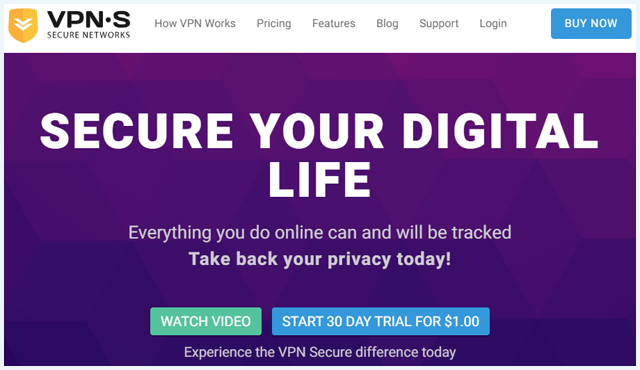
The website’s main disadvantage is that it seems deserted and creates the impression that the company no longer exists. For instance, we noticed that its blog hasn’t been updated since June 2020, and users don’t always get answers to the questions they raise on the website’s forum.
Something that further contributes to this image is that some pretty basic features of the website aren’t working well. For instance, when we clicked on “Buy now” in the top right corner, it only let us select the 30-day trial from its list of plans. This was a bit confusing to us.
Fortunately, VPNSecure’s installation process was very easy and straightforward while we were conducting our VPNSecure review. These are the steps to install it:
- Go to the VPNSecure website.
- Click on “Pricing” in the menu at the top. This will allow you to select the subscription of your choice, unlike when you click on “Buy Now” in the top right corner.
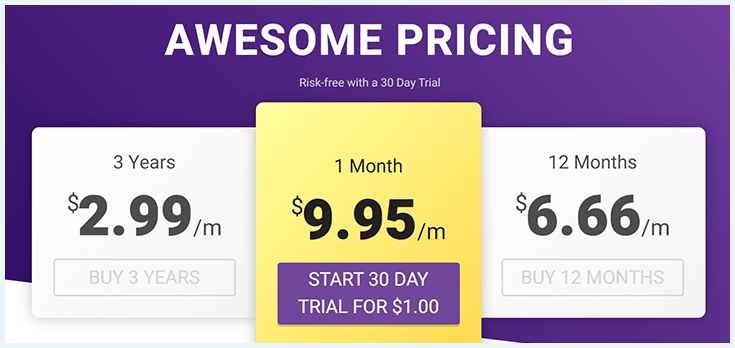
- Choose from their three subscription options.
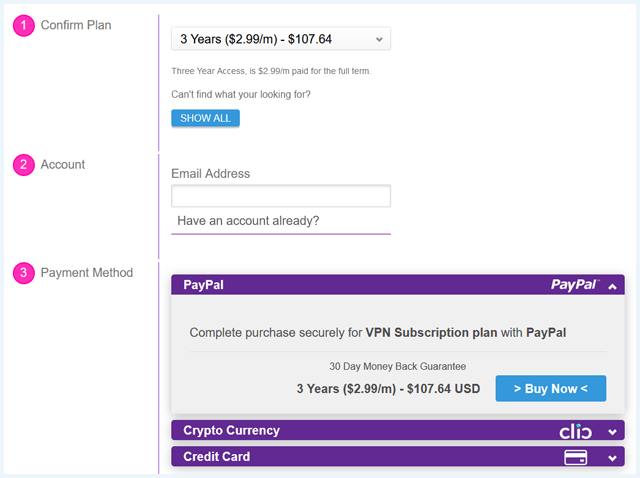
- Fill out an email address and accept (or modify, if you want to) the username and password that VPNSecure has generated for you.
- Choose your payment method, fill out any necessary details, and click on “Buy Now.”
- Complete the payment process.
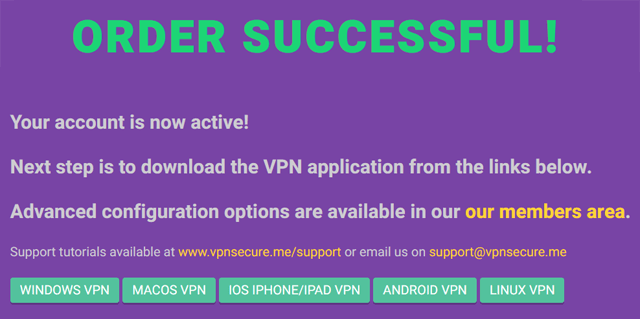
- Download the right client or app for your operating system. There is a VPNSecure Linux software as well as apps for Windows, MacOS, and iOS.
- Open the downloaded file, and complete the installation process.
- Click on the VPN app, and use your VPNSecure login information.
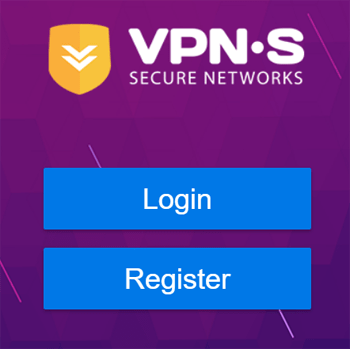
- Select a country/location to connect to a VPN server.
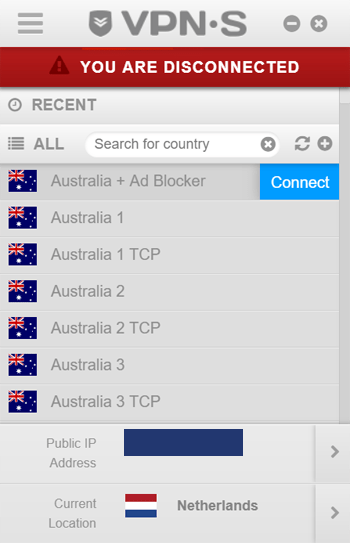
After installing VPNSecure, we attempted to connect to its servers to no avail.
When we clicked to connect to a server location, the VPN showed us a loading tab that said “Connecting.”
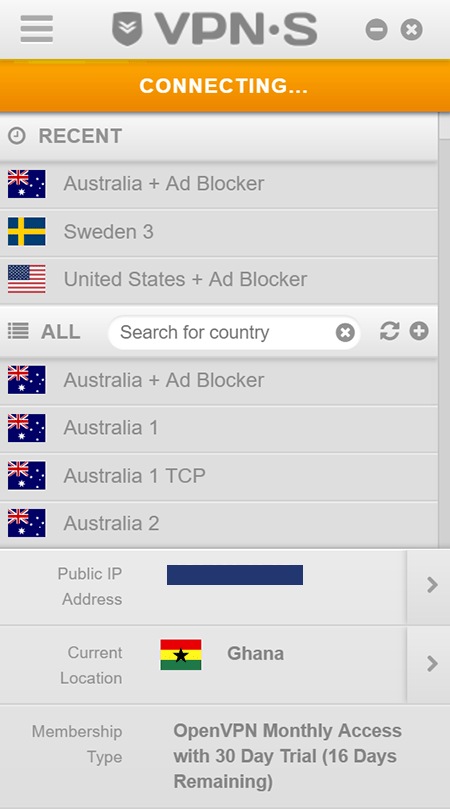
After waiting for about three minutes, VPNSecure showed us a message saying, “You are disconnected.”
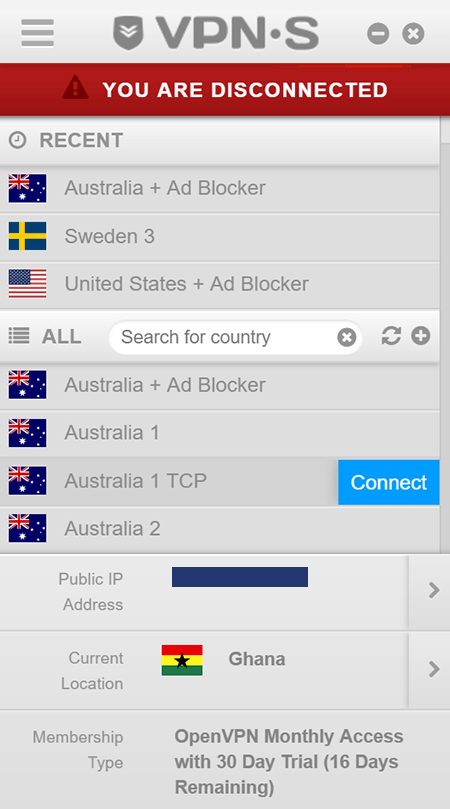
We tried connecting to servers in different countries, such as the UK server, but the results were the same.
To seek redress, we contacted VPNSecure’s customer support agents but didn’t receive a response even after two weeks. We’ll touch more on that in the customer support section.
During our previous VPNSecure review, we experienced the same problem. At that time, they asked us to configure our settings as follows:
- Disable “Leak Fix.”
- Go to “Advanced Config” and choose “AES-256-CBC” as your cipher.
- Now add “ip-win32 ipapi” to the OpenVPN directive.
- Log out and log back in.
These steps worked during our last VPNSecure review, but not this time. If you purchase VPNSecure and reach out to customer support for help, you might get these same steps. To save you the trouble, we can confirm that the method suggested by customer support last time doesn’t work anymore.
Moreover, one of the issues with the steps above is that VPNSecure asked us to ensure our password didn’t contain any special characters, just letters and numbers. This tip goes against typical advice for creating a secure password.
Note:
During our previous review, we noticed that after disabling “Leak Fix,” our connection received an Austrian IP address regardless of the server location we chose. This is a very serious issue because it means you’re not actually connected to a VPN server at all. As such, we don’t recommend against disabling the Leak Fix, even though VPNSecure recommended us to do so.
VPNSecure’s appearance and ease-of-use
VPNSecure’s app could do with an upgrade. It’s not easy on the eye, and the buttons seem cluttered. The app homepage contains a section for your recent servers and another for all its servers, and there’s a server search button sandwiched between them. It would be better to have a large power button like ExpressVPN’s and CyberGhost’s app.
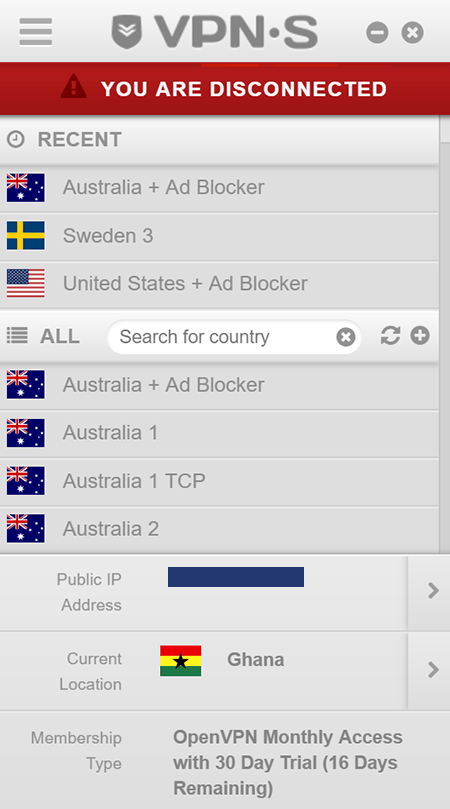
Clicking on the hamburger menu will allow you to fiddle with the VPN’s settings. This includes activating stealth VPN, changing languages, switching themes, and clearing recent servers.
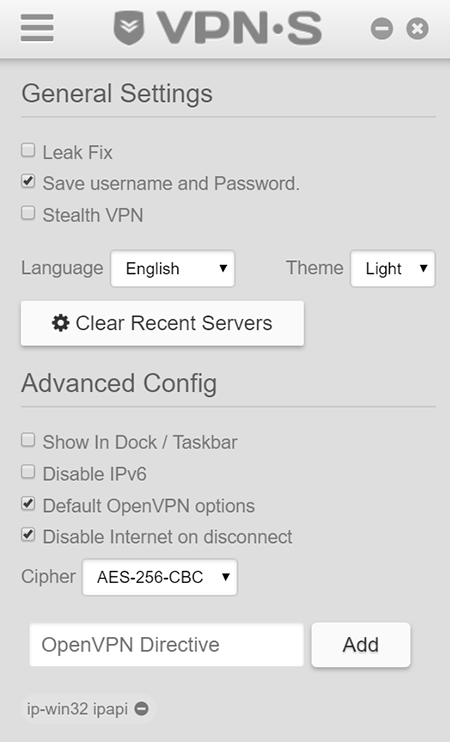
Under “Advanced Settings,” you can disable IPv6, enable the kill switch, and change the encryption cipher.
Despite the relatively smooth interface, however, we did find some major flaws with the VPNSecure client. First, every time we minimized the client’s window on desktop, the app simply disappeared from the screen.
We also couldn’t start the app again until we manually closed it in Task Manager. PIA‘s desktop app behaves in a similar manner, but it offers the option to change this in its settings.
Pricing and payment methods
VPNSecure has three pricing plans, as shown below.
- VPNSecure 36 Months $2.99mth Deal View offer
- VPNSecure 12 Months $6.66mth View offer
- VPNSecure Monthly $9.95mth View offer
VPNSecure used to experiment with some great discounts and offers. For instance, around 2016, they were offering lifetime subscriptions for only $35, cheaper than FastestVPN’s lifetime subscription.
Especially for lesser-known VPNs with fewer features and possibilities, this was a great way to try to compete with premium VPN services, such as NordVPN and ExpressVPN. However, as of now, VPNSecure offers a more conventional payment structure.
For $9.95 per month, VPNSecure’s monthly price is one of the cheapest in the VPN industry. Most VPNs ask for $10-$13 for their monthly plans.
However, at $6.66/month, the one-year plan is pricey. Take NordVPN, the best VPN, for instance. Despite providing more features and better performance than VPNSecure, its yearly Standard plan costs $4.99 monthly.
VPNSecure offers the following two payment methods:
- PayPal
- Bitcoin
The VPN provider used to offer credit card payments, but no longer. So unless you have PayPal funds or cryptocurrency to buy the VPN anonymously, you won’t be able to purchase a subscription.
How does VPNSecure’s money-back guarantee work?
VPNSecure has a 30-day money-back guarantee on its subscription packages. Moreover, it offers a 30-day trial period, which costs just $1. This is a bit unusual: we’ve never encountered a VPN with a paid trial period. Generally, providers just offer a money-back period or a free trial.
Note that VPNSecure will automatically charge you monthly after the free trial ends. So be sure to cancel before the 30 days elapse.
Customer service
VPNSecure’s customer service is virtually non-existent, as we discovered during our VPNSecure review. There’s no live chat option, and it’s unclear whether messages through their contact form are delivered.
When we couldn’t connect to any VPNSecure server, we sent five messages through the form but didn’t even receive a message of acknowledgment. Even after a month, VPNSecure still has not responded to our queries.
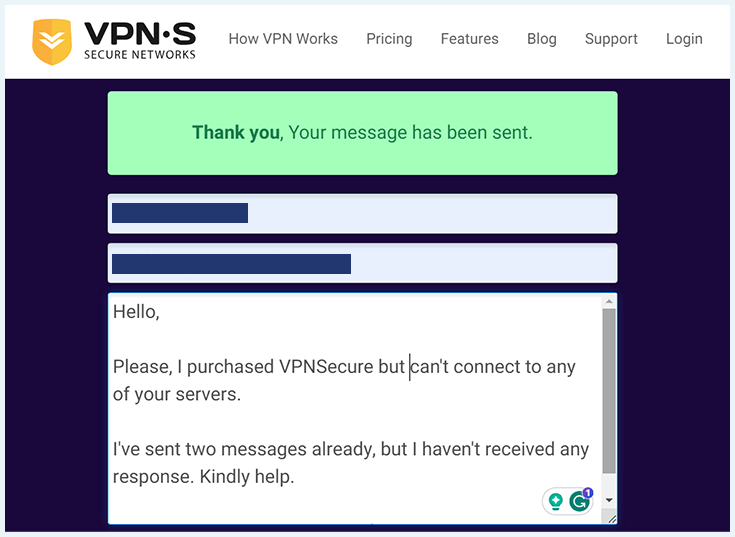
We checked through their knowledge base for help, but it didn’t offer much. The knowledge base is threadbare, consisting mostly of setup guides and a handful of FAQs.
Server Network – Is VPNSecure Good for Streaming?

VPNSecure isn’t the best option when it comes to streaming because of its small server network and connectivity issues with its servers. Hence, we give VPNSecure a 5/10 for streaming capability.
Our conclusions on VPNSecure’s server network are as follows:
- VPNSecure offers servers in a decent number of countries, but many countries have very few servers.
- The majority of VPNSecure’s servers support P2P downloading.
- VPNSecure is not compatible with Netflix.
Number of servers and locations
VPNSecure offers 133 servers in 33 countries. However, most countries have only one or two servers.
VPNSecure’s server network is small compared to what the best VPNs offer. For example, NordVPN has 5,000+ servers in 60 countries.
Here’s a breakdown of where VPNSecure’s servers are located:
- Africa: South Africa
- Asia & Oceania: Australia, Hong Kong, India, Indonesia, Israel, Japan, New Zealand, Singapore, United Arab Emirates
- Europe: Belgium, Bulgaria, Denmark, Germany, France, Hungary, Ireland, Italy, Netherlands, Norway, Ukraine, Austria, Poland, Romania, Russia, Spain, United Kingdom, Sweden, Switzerland
- North America: Canada, Mexico, United States
- South America: Brazil
VPNSecure and streaming (Netflix, Disney Plus, Hulu, BBC iPlayer)
VPNSecure is not the best provider for streaming and unblocking, based on our findings during our last VPNSecure review (its servers didn’t work for us this time).
Throughout our previous testing round, where we got the servers to work, VPNSecure wasn’t able to unblock Netflix or other popular streaming sites like Hulu and Disney Plus.
| Platform | Can VPNSecure unblock it? |
|---|---|
| Netflix | ✖ |
| Disney Plus | ✖ |
| Hulu | ✖ |
| BBC iPlayer | ✖ |
VPNSecure and torrents
In principle, VPNSecure allows torrenting on all its servers. However, since the servers didn’t work for us, there was no way to test if VPNSecure actually works for torrenting.
You’ll be better off with other VPN providers like NordVPN and Surfshark, which are good VPNs for torrenting, and their servers work without issues every time.
Dedicated IP address
VPNSecure offers you the opportunity to buy a dedicated IP address that only you can use. There are several advantages to having a dedicated IP, such as:
- You can bypass VPN blocks more easily.
- You get faster connections to the websites you want to visit.
VPNSecure offers one dedicated IP for the price of $142/year. This is quite high compared to other providers, like NordVPN, that offers a dedicated IP for $70/year, which is essentially half the price.
Our Experience With VPNSecure
All in all, VPNSecure can’t compete with premium VPN services. After all, it has multiple serious issues, as we discovered during our VPNSecure review.
First, its servers simply don’t work. We could not connect to a server to unblock any website or streaming service, play games, or download torrents. It’s headquartered in a 5 Eyes country, meaning your data could be shared with other countries. On top of that, VPNSecure doesn’t offer enough servers, and its price point is too high for its features.
We also discovered that VPNSecure’s app also has some flaws, such as when the app window disappeared when we minimized it. Moreover, customer service didn’t respond to any of our queries.
If you’re looking for a service that offers more bang for its buck, more features, and greater speeds, we recommend NordVPN, the best VPN on the market right now.
Want quick answers to your questions about VPNSecure? Click on the FAQs below to learn more about it.
VPNSecure offers decent security, given its use of the OpenVPN protocol and AES 256-bit encryption. It also has a no-logs policy and offers a kill switch. Our only concern is that it’s headquartered in Australia, which is a 5 Eyes country. For more information, check out our full VPNSecure review.
VPNSecure is a paid service. Subscriptions run at $9.95 for one month, $6.66 for one year, and $2.99 for three years. However, it’s not the best and cheapest VPN out there.
No, VPNSecure can’t unblock the US version of Netflix. Unfortunately, it can’t unblock Hulu or Disney Plus, either. And even if it did, we don’t recommend it, since its servers simply don’t work. Check our full review of VPNSecure to learn more.
